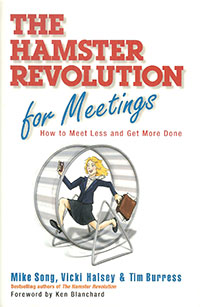 In a recent online Forbes article, a start up CEO shares how he gets things done. He explains the mechanics of creating his master to-do list each week and how he transforms his many big projects into smaller to-dos on his daily action plan.
In a recent online Forbes article, a start up CEO shares how he gets things done. He explains the mechanics of creating his master to-do list each week and how he transforms his many big projects into smaller to-dos on his daily action plan.
He says that the process he uses keeps the projects moving forward “against a backdrop of the normal daily chores that any business owner must perform, such as motivation, recruiting, marketing, accounting, and the like.”
At first blush I am glad that employee motivation is on the list. But then I notice that it’s a list of daily chores. And while I was happy that motivation was on a list of core business functions, it was strange to hear it called a chore.
I suppose if you were a recruiting expert you might also wonder how recruiting could be seen as a chore. Perhaps you are thinking, “Oh, relax. It’s just a word. At least motivation is on a key list or normal daily anythings.”
But words matter. Words matter especially to the phenomenon of employee motivation because they stimulate the creation of meaning. Meaning of what is in large part a function of what the words are. So a particular kind of motivation is more likely stimulated by calling your focus on motivating me a chore as opposed to viewing it as a strategic focus of your time and energy aimed at helping me be my best and do my best work.
Seeing motivation as a strategic focus
The more useful way to view employee motivation is as a strategic focus that sits at the heart of the value creation process. Motivation means to move. The question is, if motivation is a chore, in what ways are employees likely to be moved?
Here are three ways to think about employee motivation that are more aligned with the value creation point of view, and less with the employee motivation as a daily chore point of view:
- Employees naturally want to do good work, and the CEO could best help them do that by fostering an environment in which it is easy for them to bring their best intellectual, insightful, and creative skills to bear on the organization’s needs.
- Language matters. Take great care to talk about employee motivation in ways that speak to the meaning of what the organization does, and how much employees want their contributions to matter.
- Make sure all employee contributions matter. Even if the employee is still learning and making mistakes, celebrate the learning and affirm the effort.
This is not an exhaustive list of how to look at motivation in a value-optimizing way, but it’s a good start. Please share your thoughts and additions.
About the author:
The Motivation Guy (also known as Dr. David Facer) is one of the principal authors—together with Susan Fowler and Drea Zigarmi—of The Ken Blanchard Companies’ new Optimal Motivation process and workshop.

Read more http://leaderchat.org/2014/06/19/making-employee-motivation-matter/






